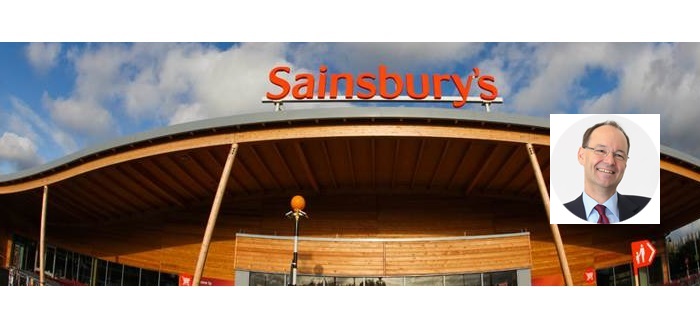Sainsbury’s has reported a 13.8% fall in annual profits alongside a warning that the market in which it operates is competitive and will remain so for the foreseeable future.
The underlying profits fall, down from £681m last year to £587m for the year to March 12, 2016, drew a sharp food-based reaction from the company’s chief executive, Mike Coupe (pictured above).
“Ongoing pricing pressures and food price deflation have impacted our sales and operating margins,” he said. “As a result, underlying profit and earnings per share are down this year versus last year.”
Later, however, in the more detailed content of the company’s financial statement, a slightly more positive view on food prices emerged.
“Food price deflation has eased slightly in recent months and we anticipate macro-economic factors will eventually lead to the return of food inflation,” it was stated. “There are also encouraging signs in volume growth with customers buying more items than previously, albeit not enough to offset the deflationary effects.”
Despite this, the Sainsbury’s report also stated: “The grocery sector has experienced sustained food price deflation for nearly two years, driven in part by lower commodity prices and in part by the competitive pricing environment.
“The continued expansion of the discount retailers, offering a limited number of products at low prices, has forced the established grocery retailers to cut their prices and tailor their offer.”
Sainsbury’s, which has 601 supermarkets and 773 convenience shops across the UK, said that while it expects consumers to shop more often in convenience stores and online in the future, it still anticipates that the supermarket will remain the most popular destination for customers.


